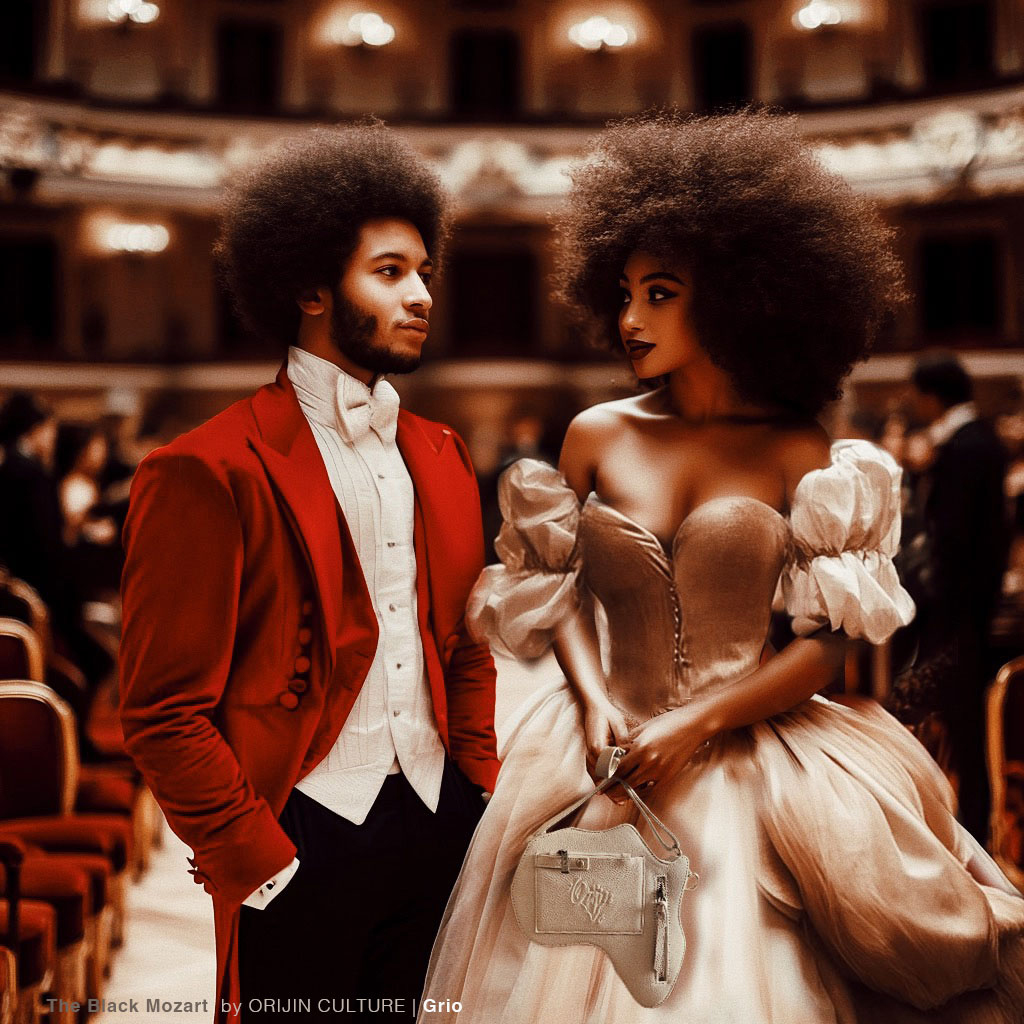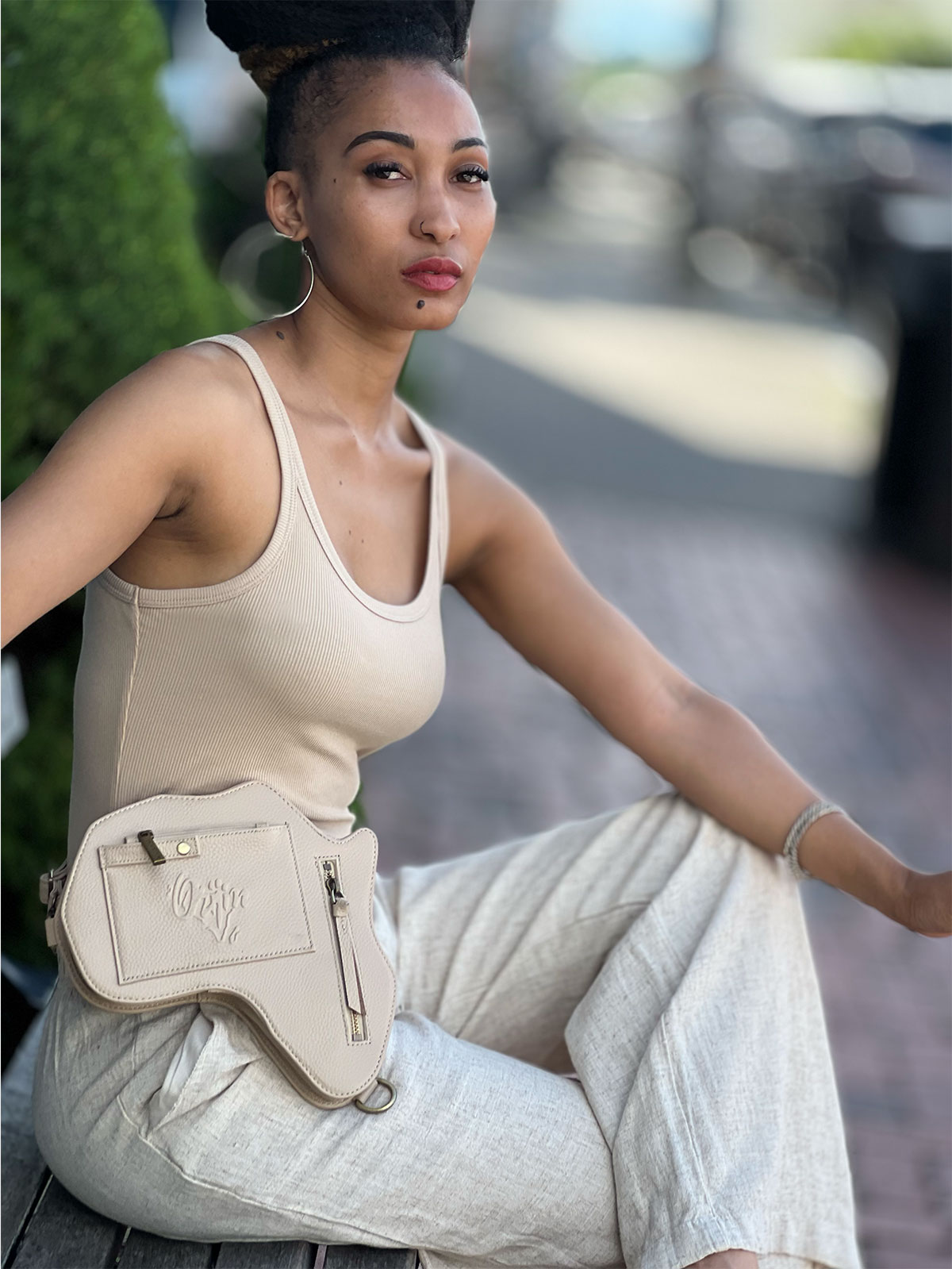It was the 1800s, a time when the world was steeped in classical music and fine art and culture. In a bustling European city, whispers of an extraordinary event spread like wildfire. Black Mozart, the brilliant composer and violinist, was set to perform. This wasn’t just any performance; it was an event that drew the elite, the fashionable, and the daring. And in the midst of this grand occasion, Mimi, a Black woman designer, was determined to leave a mark. After all it was Brother performing and we had to come out right to represent.
My friends and I had spent weeks preparing for this night. We were more than just attendees; we were visionaries, bringing the elegance and richness of Afro fashion to the heart of Europe. Our gowns were crafted from the finest silks and adorned with intricate patterns inspired by our African heritage. Each stitch was a tribute to our culture, a celebration of our identity.
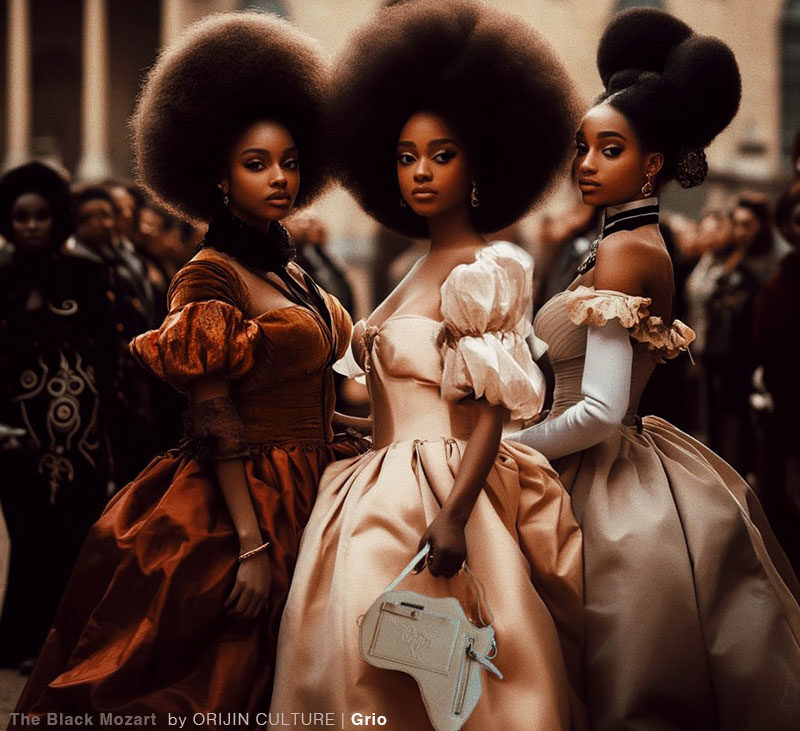
As we arrived at the grand concert hall, heads turned and whispers filled the air. Our entrance was nothing short of spectacular. I wore a flowing gown of ivory that shimmered under the candlelight. My friends were equally stunning, dressed in bold colors and fabrics that spoke of royalty and grace. My unique Africa-shaped leather bag was of course the talk of the night with many compliments. Ohh yes! It indeed add the perfect finishing touches to our ensembles. Inside, the atmosphere was electric. The concert hall was adorned with opulent chandeliers, and the audience buzzed with anticipation. We found our seats, and as the lights dimmed, Le Mozart Noir took the stage. His presence was commanding, his talent undeniable. The music he played was a fusion of classical elegance and African rhythm, a testament to his unique genius.
During the intermission, we mingled with the elite, our Afro fashion drawing admiration and curiosity. One by one, they approached us, eager to learn about our designs and the inspirations behind them. “Pride for my rich heritage and culture” I had replied so much it begun to sound like an anthem. It was a moment of cultural exchange, a blending of worlds that seemed worlds apart yet were connected through the universal language of art and fashion.
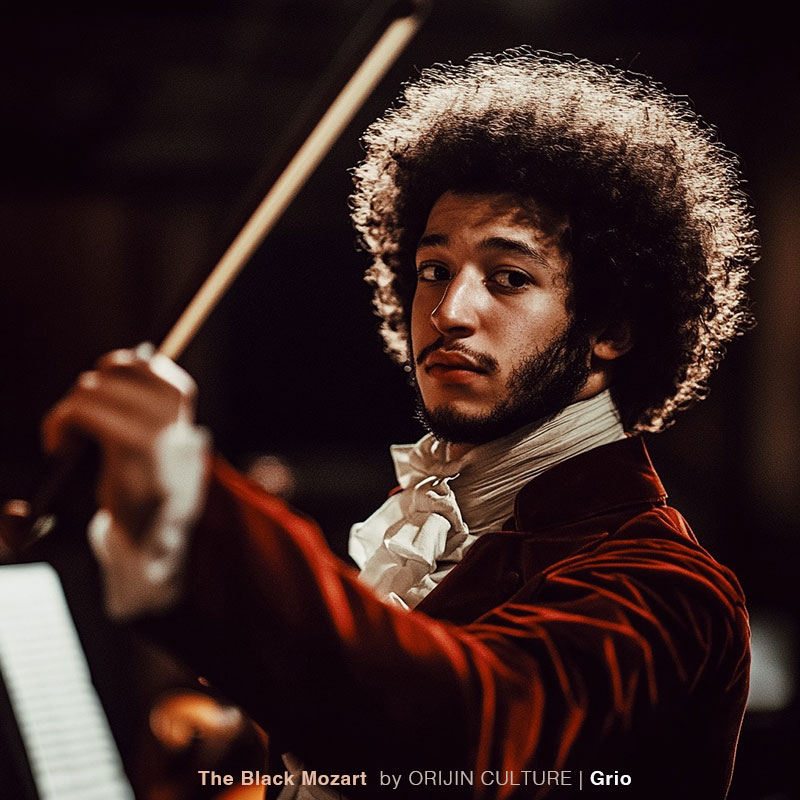 The night took an unexpected turn when a distinguished gentleman approached me. He introduced himself as a renowned art patron and expressed his admiration for my fashion. “Your designs are extraordinary,” he said. “They bring a breath of fresh air and the untold story of my African origin and Culture. My Mother is Senegalese” I smiled, humbled by his words. “I never knew and Thank you for the compliment. My fashion is and will always have a reflection of our heritage, our pride, and our journey.” He nodded thoughtfully. “I would love to showcase your work at an upcoming exhibition. Your designs deserve to be seen by the world.”
The night took an unexpected turn when a distinguished gentleman approached me. He introduced himself as a renowned art patron and expressed his admiration for my fashion. “Your designs are extraordinary,” he said. “They bring a breath of fresh air and the untold story of my African origin and Culture. My Mother is Senegalese” I smiled, humbled by his words. “I never knew and Thank you for the compliment. My fashion is and will always have a reflection of our heritage, our pride, and our journey.” He nodded thoughtfully. “I would love to showcase your work at an upcoming exhibition. Your designs deserve to be seen by the world.”
My heart soared. This was the opportunity of a lifetime, a chance to shine Afro fashion to the forefront of the European fashion scene. We exchanged contact information(Don’t forget this is all in my imagination, so it’s okay for me to picture unzipping my Africa Bag and pulling out my phone, lol). After exchanging numbers, I knew that this was just the beginning of something monumental.
As the concert came to a close, the audience erupted in applause. Le Mozart Noir had once again proven his brilliance, and we had made our mark. Our fashion had not only stolen the scene but also bridged a cultural gap, showcasing the beauty and elegance of African design. In that magical night, amidst the music and the glamour, we had rewritten the narrative. We were not just spectators; we were creators, influencers, and pioneers. And as we left the concert hall, our Africa-shaped leather bags swaying with each step, we knew that our journey had only just begun for the future.
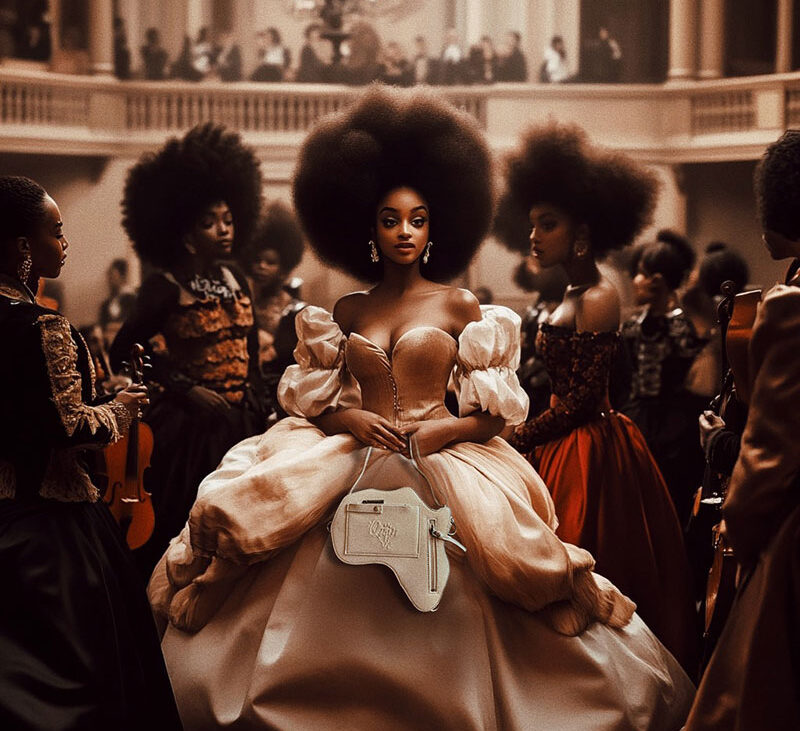
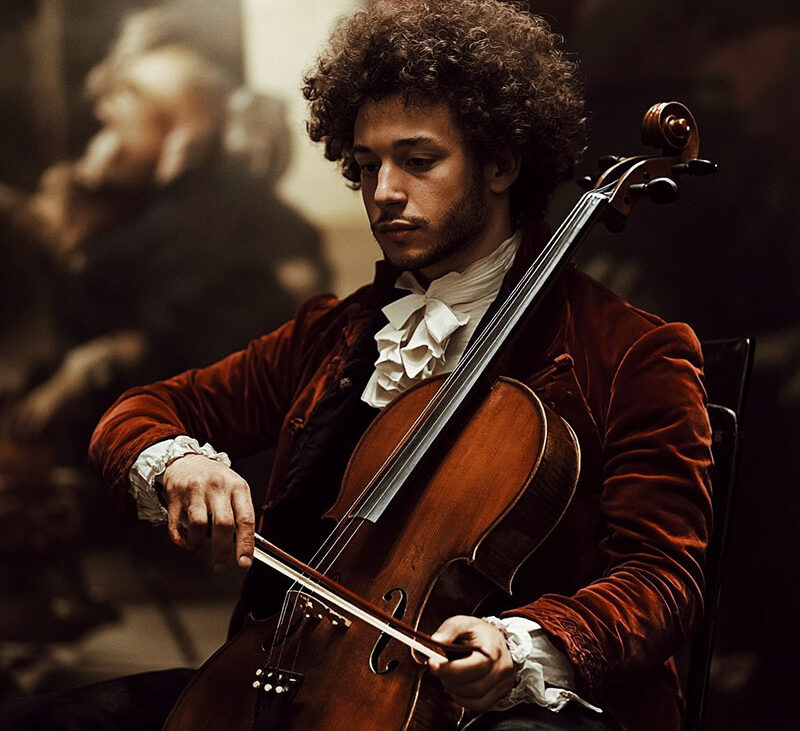
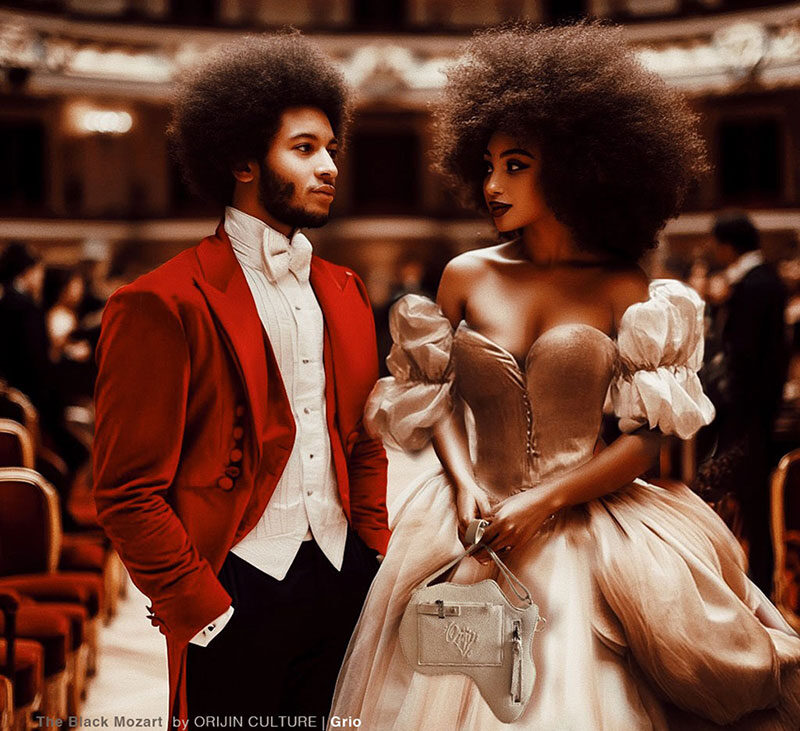
Mozart Noir, the 1st Afro-French to... | Kusoma MoreLess
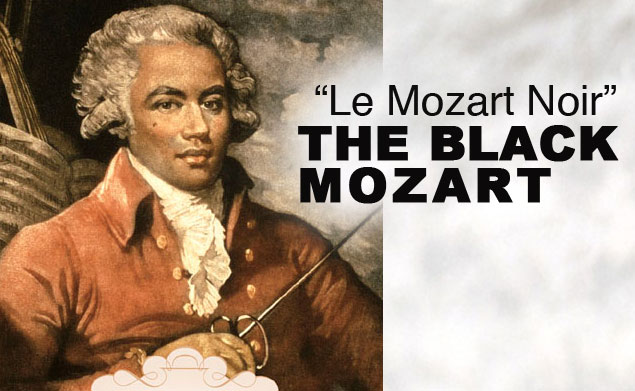
sanaa daima na jukumu muhimu katika historia na utamaduni wa kizazi Afrika. Wakati watu wengi leo mara nyingi kikomo wigo wa sanaa ndani ya nje ya nchi za Afrika hip hop, rap, R & B, kisasa ngoma na wengine wote kujitokeza kisasa aina ya muziki sanaa, Wazao wa Afrika wamechangia na zimetekeleza majukumu muhimu katika aina zote za sanaa na kuwa alifanya hisia muhimu na kubwa juu yao.
Joseph Bo(wewe)Logne, Chevalier de Saint-George (Desemba 25, 1745 - Juni 10, 1799) also known as “Le Mozart Noir” or “the black Mozart” was the first black man to lead France’s most important orchestras. mtunzi, conductor na violin virtuoso, Chevalier de Saint-George was born to an enslaved Senegalese Mother and a French colonialist in the French-Caribbean island of Guadeloupe and moved to France at the age of 8. Pia inajulikana kwa talanta yake ya riadha kama swimmer na Swordsman, pia alikuwa miongoni mwa watunzi wa mwanzo wa Ufaransa wa quartets string, Sinfonia Concertante, na quartets concertantes.
Zawadi Chevalier de Saint-George kama violinist ni mara nyingi walikutana na sifa. Katika Arion CD 55445 (1999) violinist Joel Marie Fauquet alitangaza kwamba 'talanta yake velvety kwenye violin wakati mwingine akampa upendeleo juu ya wasanii cleverest wa siku zake'. Vipaji wake mkuu kama kondakta wa Le Concert iliwakilishwa na ukweli kwamba alikuwa alitangaza kama kuwa na “orchestra bora kwa symphonies katika Paris na labda katika Ulaya” by The Musical Almanac in 1775.
Pamoja na vipaji yake alibainisha na mafanikio, Chevalier de Saint-George si kinga ya ubaguzi wa rangi. Alipokuwa na mapendekezo kama mkurugenzi wa muziki wa opera katika 1776, wengi wamepinga na alifanya dua kwa malkia kutangaza kwamba "heshima yao na dhamiri zao maridadi kamwe kuwaruhusu kuwasilisha kwa amri ya mulatto." Pamoja na pingamizi hizi alibainisha, he persevered on and became one of the biggest stars in 18th century France.
Bob Marley advised “Don’t gain the world and lose your soul, hekima ni bora kuliko fedha au dhahabu…". Ni kwa njia ya kupata elimu ya utamaduni wetu na historia tajiri tutakuwa na uwezo wa quire hekima Bob Marley alisema. hadithi ya Chevalier de Saint-George hutoa si tu kama sehemu muhimu ya historia ya Afrika dunia, lakini pia ni msukumo kwa ajili ya wasanii watarajiwa.
It's beyond Fashion for us, It's weaving our own stories with pride and preserving our heritage in style. Enjoy your shopping Below.
Share the ORIJIN CULTURE
Machapisho ya hivi karibuni na Nekita (kuona yote)
- Kabla ya Rihanna kulikuwa na Grace Jones - Desemba 27, 2014
- Marimba: Usemi wa Uhuru, bado yangu Afro-Ecuadorians… - Desemba 25, 2014
- Nani Hufanya madai ya kuwa mji mkuu wa Reggae wa Dunia? - Desemba 24, 2014


